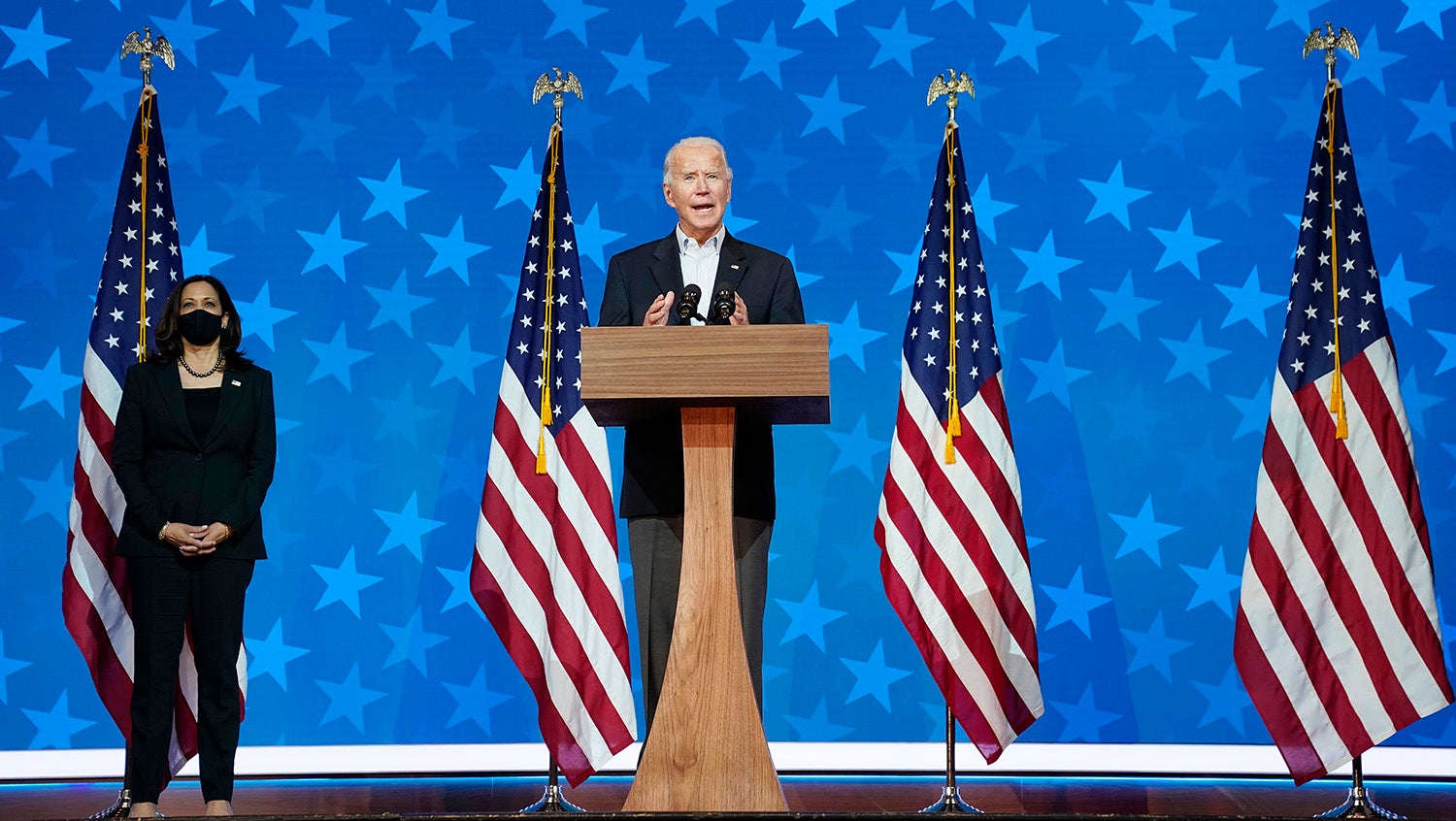5 Executive Actions for Immigrant Rights the Biden-Harris Administration Should Take on Day One
November 7, 2020
By Sarah Kimball, MD, By David Opp, MPH

Getty Images
The newly elected Biden-Harris Administration has the opportunity to wield executive authority to stand up for immigrant rights and signal America’s renewed commitment to human rights.
Over the past four years, the United States has witnessed the effects of a federal administration that has systematically eroded the rights of immigrants and refugees through its expansive use of executive power — action not requiring approval from Congress. In four short years, we have seen increases in indiscriminate deportations, a severe restriction in access to humanitarian statuses (such as refugees and asylees), and numerous roadblocks added to legal immigration pathways.
These changes, and the relentless way that they have been rolled out over the past four years, have stoked fear in immigrant communities. This fear oftentimes shows up in our primary care clinics: Immigrant patients will share that they worry about whether their safety and livelihood will be affected by these policy changes, and whether xenophobic rhetoric will incite further acts of discrimination and violence. In many instances, immigrant patients opt to forego care or support they are entitled to in order to avoid possible repercussions for themselves and their families.
The newly elected Biden-Harris Administration, however, has the opportunity to wield the same broad executive authority to instead stand up for immigrant rights and signal to the rest of the world America’s renewed commitment to human rights.
Biden, as a Presidential candidate, promised to end the “unrelenting assault on our values and our history as a nation of immigrants.” As experts in immigration health and policy, we share our five recommendations for executive actions the Biden-Harris administration should take on Day One to make immediate good on that promise:
- End family separation
- Overturn the Muslim ban
- Reinstate Temporary Protected Status
- Welcome refugees and asylees
- Stop use of immigration wealth test
End family separation
Immediately end family separation at the Southern Border with Mexico, which resulted in over 5,400 children being taken from their parents. This deliberately cruel policy was intended to deter future migrants from crossing the border. The long-term consequences of family separation on children’s healthy development is an unconscionable cost, and the Biden-Harris administration should do everything in its power to reunite children with their families, while undergoing a thorough investigation of the facts through a truth and reconciliation process. These actions should include restating a commitment to the Flores Settlement Agreement, which the Trump Administration attempted to end in order to detain migrant families indefinitely.
Overturn the “Muslim ban”
Rescind the Presidential Proclamation restricting travel to the U.S. from five Muslim majority countries (Iran, Libya, Somalia, Syria, and Yemen) and North Korea. The order was touted as a critical and urgent security measure to protect citizens from foreign terrorists — a baseless claim considering most terror attacks to-date have been carried out by native-born individuals. This travel ban is a stain on our country’s commitment to racial and religious equity, separating families and stranding refugees who were bound for the U.S. from these countries. The Biden-Harris administration must make clear that this type of hateful rhetoric and discriminatory policymaking is over: Overturn the order.
Reinstate Temporary Protected Status (TPS)
Reinstate TPS for individuals from phased-out countries, and revisit the possibility of long-term solutions for individuals and families who have held TPS for years, some having lived in the U.S. since the 1990s. TPS is intended to offer temporary permission to remain in the U.S. to individuals who are unable to return to their home countries safely due to natural disasters, war, or other dangerous conditions. Under the Trump administration, the program has been phased out for El Salvador, Haiti, Nicaragua, Sudan, Honduras, and Nepal on the grounds that these countries were once again stable enough to allow for a safe return. People from these six countries account for approximately 98% of individuals enrolled in TPS, and the claim that their home countries are “safe” is disputed by many political experts. In addition, over 130,000 TPS holders have held essential jobs in the COVID-19 pandemic — including nearly 12,000 in healthcare — and loss of TPS status for those individuals would strip them of their work permits, causing instability in local job markets and adding further strain to the country’s pandemic response as well as these individuals’ resources for health necessities.
Welcome refugees and asylees
Reaffirm America’s commitment to refugees and asylum seekers, who President Trump has repeatedly mocked and denigrated, expressing his belief that decades of international human rights law amounts to a “scam.” During the campaign, Biden went on record saying he would raise the annual refugee admissions cap to 125,000, up from the current record low of 15,000 set by President Trump. Additionally, the new administration should rescind overly stringent requirements that place an overwhelming burden on asylum applicants to prove that the threat of harm is credible, and remove the fees in place for applying for asylum. While the administration could immediately lift the “Remain in Mexico” policy, which is forcing asylum seekers to live in unsafe conditions in makeshift encampments along the Southern Border, they also need to work cooperatively with Mexico and Central American countries to improve the on-the-ground conditions in the long-term.
Stop use of immigration wealth test
Rescind sub-regulatory language on “public charge” — an immigration determination that amounts to a wealth test — that appears in the State Department’s Foreign Affairs Manual used by consular offices at American embassies around the world. The current administration cited concerns that immigrants must be financially self-sufficient, not relying on public benefits to support themselves. But the impact of this determination has been to drive some immigrants towards the impossible choice of receiving critical public benefits at the risk of their future possibility of a green card. Reversing the public charge rule is a critical first step toward reversing course on the previous administration’s overly restrictive public charge rules. Fear of utilizing public resources, such as government-subsidized health insurance, housing assistance, and food stamps, has dramatically worsened the health and wellbeing of immigrants and their families, which oftentimes include U.S. citizen children. Symbolically, the Biden-Harris administration should reject the previous administration’s distorted interpretation of the Lady Liberty decree “Give me your tired and your poor…” who can ‘stand on their own two feet’ and ‘not become a public charge.’
Comprehensive, long-term reforms of the U.S. immigration system will require participation from Congress in addition to federal rulemaking. Critical changes, such as providing a pathway to citizenship for DACA recipients, will take the sort of bipartisan collaboration that President Biden has previously touted as one of his strengths. Nevertheless, the Biden-Harris administration has the unique opportunity, through the executive actions outlined above, to signal to the country and world that, under their leadership, there will be an end to the systematic and persistent dehumanization and denigration of our immigrant neighbors, and renewed esteem for America’s promise as a nation of and for immigrants.


